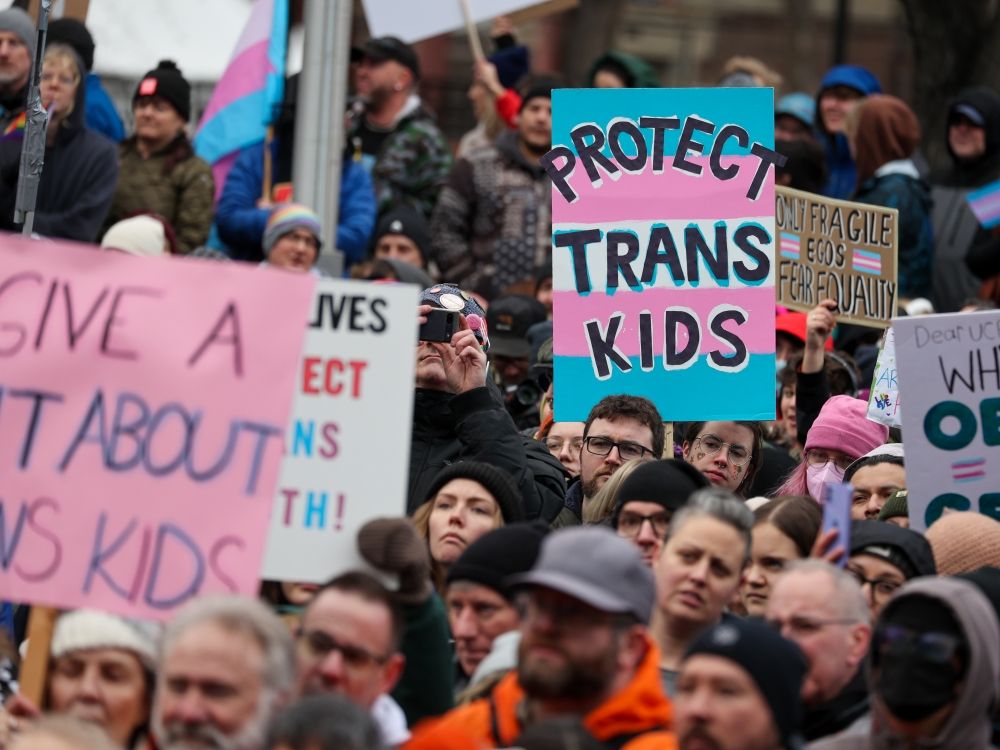Alberta’s Transgender Medical Treatment Policy in Legal Limbo
Transgender medical treatments for minors in Alberta are currently on hold due to a recent court ruling. In December, the province amended its Health Professions Act to prohibit doctors from prescribing hormone therapy and puberty-suppressing drugs to minors with gender-related psychological disorders. However, this law was never implemented, and the government had planned to issue an order allowing exceptions to the rule.
Before these changes could take effect, Egale Canada, a charity that is 71% government-funded, successfully obtained an injunction on June 27. This legal action paused all restrictions until a constitutional challenge could be heard. The judge overseeing the case, Allison Kuntz, appointed to the Court of King’s Bench by Justin Trudeau in 2023, argued that age-based restrictions on cosmetic hormone treatments would cause significant harm to transgender youth.
The judge stated that the ban could lead to permanent body changes that do not align with a person’s gender identity. She also noted that such restrictions might reinforce discrimination and prejudice against gender-diverse youth, signaling that having a gender identity different from one’s assigned sex at birth is somehow wrong or suspect.
The Alberta government had presented extensive evidence over 183 pages, arguing that the scientific support for cross-sex medical treatments for minors is unclear. They called upon four Alberta doctors and three detransitioners to testify. The government cited studies like the United Kingdom’s Cass Review and other European research, suggesting that puberty suppression can make later transgender-related surgeries more dangerous and that cross-sex hormones carry significant risks.
The government’s brief emphasized that minors diagnosed with gender dysphoria or gender incongruence should be protected from assuming significant and potentially life-altering risks. It suggested that puberty itself might help some minors avoid a gender-disorder-related diagnosis.
However, the judge focused primarily on the potential harm to transgender youth rather than the medical risks. She was influenced by the children who joined Egale Canada in the challenge, including an 11-year-old male socially transitioned at age three, a 10-year-old male identifying as agender since kindergarten, and a 12-year-old male on puberty blockers who wanted to become a woman after watching the film Moana.
In the judge’s view, most trans youth were better off under the current system, with professional standards for doctors serving as their primary safeguard. She acknowledged that some patients and parents might have had negative experiences but argued that it would be a stretch to conclude that all doctors practicing gender-affirming care had failed in their responsibilities.
From the beginning of her decision, the judge seemed to favor the progressive left’s gender ideology, suggesting that biological sex is an irrational label. Alberta faces a challenge: despite growing evidence questioning the use of cosmetic hormonal interventions for minors, the province relies on established professional standards and keeps politicians out of doctors’ offices.
Both Alberta and Egale Canada agree that the prevailing clinical guidance includes the World Professional Association for Transgender Health (WPATH), which supports a radical affirmation model and has been criticized for questionable research practices. The Canadian Pediatric Society also supports WPATH guidelines.
The judge appeared to accept these positions as dogma, with some influence from Egale and its litigation partner, the Calgary-based Skipping Stone foundation, which receives government funding and support from other charities. The Supreme Court of Canada has been endorsing gender ideology since 2023, making it easier for such views to gain traction.
Alberta is not just battling a few activists; it is facing a federal government that indirectly influences through judicial appointments and financial support for ideologically aligned charities. While there will likely be losses along the way, the ultimate test will be whether Premier Danielle Smith decides to invoke the notwithstanding clause.







